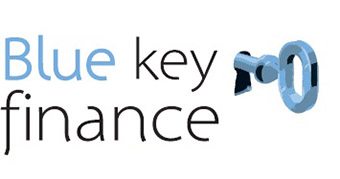What can I do if I start to struggle?
There are several things you can do. Most importantly, keep the lines of communication open with your lender. It is very hard to negotiate a repayment arrangement to save your home or even get time to sell after the lender has obtained judgement. The solution may be as simple as extending the term of your contract and reducing repayments. Just be aware, though, that if your lender does not believe this will help your situation then they do not have to agree on the arrangement.
Below are numerous ways to get your financial position under control:
Helping you manage your money
- Financial Assistance Hub – Australian Banking Association (ausbanking.org.au); Helpful financial information from the ABA (Australian banking Association)
- https://moneysmart.gov.au ; An Australian Securities & Investments Commission (ASIC) initiative offering tips and tools to help make the most of your money.
Free community support and counselling services
- Welcome Page – National Debt Helpline (ndh.org.au) ; Developed by Financial Counsellors, this site has simple step-by-step guides explaining how to fix common debt problems. If you need more help, call 1800 007 007 to speak to a free and independent financial counsellor.
Government support services
- Centrelink – Services Australia ; information about Federal Government initiatives and eligibility.
- Find unclaimed money – Moneysmart.gov.au ; Simple search tools to find unclaimed money from Banks, shares and investments and life insurance policies.
Contact your Bank
With consumer protection legislation in place since July 1 2011, all lenders have a hardship clause in their mortgage contracts, which in essence, encourages empathy from the lender to help you get through this short term issue. Give your Bank a call and be honest and upfront with them and you’d be surprised the leniency they will show. There are options for you, which can come in the form of frozen repayments, frozen interest rates and or partial repayments. It is important to note that interest is still added to your mortgage. Anyway, please contact your Bank.
You can ask your Bank to reset your current loan balance over 30 years again, thereby reducing your minimum repayments. It may, in some instances cut your monthly repayments by up to $500.
Request a short interest-only term (say 12 months). You can still pay principle/additional repayments at any time but at least the required minimum repayment will be much less than what it is now.
Try completing our comprehensive budget planner at https://bluekeyfinance.com.au/home-loan-calculators/budget-planner-spreadsheet/ . This comes back to budgeting and having a good understanding of where you can cut down on any surplus expenses and enlighten you as to where your money is going.
Ensure you’re on the best deal. 95% of the time when we visit clients we can always find them a better deal. While we look into that for you, we can also look at extending your mortgage to pay off all other personal loans and credit card debt which will seriously reduce your overall monthly repayment commitments.
Consider taking on a second job to earn some additional income, or working more overtime, or ask your boss for a salary review. You may even come up with a way to earn additional income from home.
Impact on credit score
- Financial hardship won’t impact your credit score as long as the repayments are made as per the agreement.
- Your credit report will show that your repayment obligations have been impacted by a financial hardship arrangement. This will be shown by a letter code ‘A’ (temporary) or ‘V’ (permanent).
- Financial hardship information only stays for 12 months. 12 months after the arrangement’s final repayment for temporary or 12 months after arrangement started for permanent.
- Your credit report will not show the reason for financial hardship
Move out or sell up
By renting out your home and living somewhere cheaper you may be able to manage your repayments. Selling is a hard decision but it’s better to do it yourself rather than have the lender take over, as you’re more likely to get a better price and avoid legal costs.
Access your super
You may be able to dip into your super on compassionate grounds. The most you can get from one fund in 12 months is three months of repayments and 12 months interest on the balance of the loan. Release is given only if your lender is threatening to sell your home and you can’t pay the arrears any other way.
Obtain a mortgage relief loan
Some State Governments provide assistance to eligible low-income families so they can buy and maintain their homes.
Seek help
The last resort would be to seek professional advice from a specialist financial counsellor which you can find one by simply doing a google search.



Leave a Reply
Want to join the discussion?Feel free to contribute!